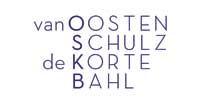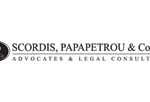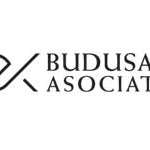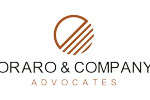OSKB’s Geertjan van Oosten and Dinya Torny discuss how individuals at suspected companies also run the risk of criminal prosecution
In early September 2018 news emerged that the Dutch Public Prosecution Service (PPS) had conducted a large scale criminal investigation into ING Bank and had agreed a settlement. The settlement amount of €775m was the largest in Dutch history. The PPS announced that ING Bank had for years failed to take measures to prevent money laundering with its bank accounts. In the opinion of the PPS, ING was guilty of culpable money laundering.
After payment of the settlement amount, the PPS would not only refrain from further prosecution of ING Bank, but also of its managers. This approach by the PPS attracted much criticism. There were allegations of social injustice, as it would enable large companies and their boards to ‘purchase’ criminal immunity – at the expense of its shareholders – so that they would not have to answer in open court. Noticeably, with this settlement the interests of the victims of ING Bank’s objectionable actions (including some who had transferred funds to accounts opened at ING Bank by fraudsters) were not taken into account. In a criminal trial, these victims would otherwise have had a fairly straightforward legal recourse to recover their damage from ING Bank.
In the Netherlands, settlements do not yet have to be submitted to court for approval before they are concluded. There is therefore no external independent judicial oversight and the only form of accountability in this case was a press release and a statement of facts drawn up by the PPS. Although the defendant does not formally have a role in the drafting of the text, it is plausible that important input can be provided in its preparation. Strikingly, at the time ING Bank did not acknowledge that it had committed any criminal offences, but only acknowledged that there had been serious failings and that it had taken many measures to prevent such failings in the future.
After the announcement of the settlement, various interested parties filed complaints with the Court of Appeal in The Hague. The complaints were not only directed at the settlement with ING Bank but also concerned the decision not to prosecute its directors, including its CEO (who has since stepped down). The Court of Appeal issued its ruling on these complaints in late 2020. This outcome shows that managers of a Dutch legal entity (or so called ring leaders, ‘feitelijk leidinggevers’) run an increased risk of being prosecuted and will undoubtedly influence the PPS’ policy for large settlements with other Dutch corporates such as ABN Amro Bank.
Legal framework
In the Netherlands, criminal offences can be committed not only by natural persons but also by legal entities. If the PPS believes that a legal entity has committed an offence, the ring leaders and commissioners may also be prosecuted in certain circumstances. A ring leader or de facto manager exists if the prohibited conduct has been supervised (‘managed’). This is the case if the individual actively and effectively directed the legal entity’s punishable conduct. However, a less active attitude by the individual concerned is also sufficient if the prohibited conduct is the inevitable consequence of the accused’s general policy. Case law shows that directors’ criminal liability can follow even from a passive attitude by the manager. The concept of ‘commissioning’ is narrower and suggests a closer connection with the offence than the concept of ‘de facto management’/being the ring leader.
This case shows that managers of legal entities in the Netherlands also increasingly risk being prosecuted themselves by the PPS.
This legal framework formed the core of complaints against the ING Bank settlement. In its final ruling the Court of Appeal considered with regard to the ex-CEO that he was aware of the criminal conduct and was authorised and reasonably required to take preventative measures. He failed to do so but also encouraged the conduct and thereby consciously accepted the significant likelihood that prohibited conduct would occur. The conclusion was therefore that the ex-CEO, who had been absent at the hearing, which apparently was considered important, should be regarded as a suspect because there were sufficient leads for a successful prosecution. The Court of Appeal ordered the PPS to prosecute him, which is expected to start in the course of 2021. The settlement with ING Bank itself was upheld because ING Bank’s successor CEO openly admitted to the Court of Appeal at the last minute that criminal acts had been committed. The Court of Appeal did for the first time confirm that ING Bank’s systematic failure to comply with KYC requirements during the period 2010-2016 did not merely amount to ‘serious failings’ but actually constituted a serious criminal offence. This judgment came as a shock to directors of Dutch companies and made it to the international press. The case was also politically sensitive and the Minister of Justice and Security had to promise that the new criminal code would probably feature an in camera (closed) procedure in which the PPS and the suspect will be heard before a settlement becomes effective. The court will then summarily assess settlements for the presence of sufficient evidence to prosecute and the process by which they are concluded. The judgment also makes clear that in future the PPS will have to provide very good reasons for not prosecuting any natural persons for criminal conduct of legal entities.
Risks for managers of legal entities
While in the past managers may have expected to be left alone as long as the company would pay a substantial settlement at the expense of its shareholders, this case shows that managers of legal entities in the Netherlands also increasingly risk being prosecuted themselves by the PPS. The manager will then have to answer in open court for punishable behaviour of the company. Fines, community service or even prison sentences (suspended or otherwise) are possible. In the Netherlands, it is also possible to sanction offences through administrative law. This occurs frequently. Administrative bodies, such as the Netherlands Authority for the Financial Markets and the Netherlands Authority for Consumers and Markets, not only regulate but also have the power to impose substantial fines on legal entities and individuals. Under certain circumstances, it is even possible for both criminal and administrative sanctions to be imposed for the same offence.
In the proceedings before the Court of Appeal the lawyers of Van Oosten Schulz De Korte Bahl (OSKB) represented the interests of a group of victims of ING Bank’s failed policy. OSKB specialises in assisting legal entities and individuals who are or risk being suspected of a criminal offence or who are or risk being fined by an administrative authority. Our in depth knowledge of administrative and criminal law, as well as civil and company law, enables us and our team to respond quickly and effectively in these matters.

G.J. (Geertjan) van Oosten
Tel: +31(6) 53 56 24 78/+31(0)20 60 60 680
E: vanoosten@oskb.nl

B.E.J. (Dinya) Torny
Tel: +31(6) 81 52 34 23/+31(0)20 60 60 680
E: torny@oskb.nl












